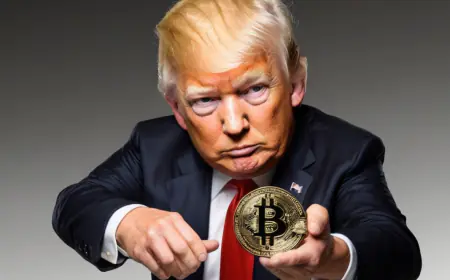Catch up on Asia’s top crypto stories of the week
Asia’s crypto scene has been buzzing with activity, packed with a mixture of warnings, regulatory shifts, and market dynamics that could give any crypto enthusiast a run for their money. This week, we’re diving deep into the heart of the continent’s digital currency developments, unearthing the stories that have stakeholders on the edge of their […]

Asia’s crypto scene has been buzzing with activity, packed with a mixture of warnings, regulatory shifts, and market dynamics that could give any crypto enthusiast a run for their money. This week, we’re diving deep into the heart of the continent’s digital currency developments, unearthing the stories that have stakeholders on the edge of their seats. With the crypto world’s ever-evolving industry, staying updated is not just a necessity; it’s a survival tactic.
Regulatory Warnings and Legal Battles
Starting off with Hong Kong, the Hong Kong Monetary Authority (HKMA) has stepped in to clear the air around the misuse of its name in the crypto sphere. Some opportunistic entities have been misleading the public, pretending to be part of the prestigious Hong Kong Dollar Digital Pilot Scheme. The HKMA was quick to clamp down on these claims, emphasizing that legitimate companies involved would never seek public funds under the scheme’s guise. Similarly, the Securities and Futures Commission (SFC) flagged suspicious websites masquerading under the name “KKR Global,” luring unsuspecting victims into a web of fraudulent crypto investments.
Crossing over to South Korea, the crypto exchange scene is witnessing an unusual trend with Tether (USDT). The premium rates for USDT have soared, particularly on platforms like Upbit and Bithumb, drawing attention to a possible surge in demand or speculative trading activities in the region.
In legal arenas, Terraform’s co-founder Do Kwon finds himself a free man, albeit confined to the Balkans, as he navigates through a maze of international criminal charges. Meanwhile, Three Arrows Capital’s founder Kyle Davies is playing a game of geographical chess, attempting to avoid a fate similar to his colleague by staying clear of Singapore.
On a more personal note, Azuki’s founder Zagabond, chose an event in Shanghai to share his roots, born in Harbin, China. This revelation comes at a time when the Eastern and Western crypto communities seem more eager than ever to bridge their differences and unite under the banner of blockchain and digital currencies.
Market Movements and Strategic Shifts
The narrative also shifts towards the dynamics of the market and strategic decisions by key players. Hong Kong-listed Yuxing Technology made a significant pivot in its investment strategy by converting its Bitcoin and Ethereum holdings into stablecoins, amounting to a hefty $14.4 million. This move reflects a cautious yet optimistic outlook towards the stability offered by digital currencies like USDC and USDT, amidst the volatile nature of the crypto market.
OKX, a major player in the crypto exchange domain, announced its withdrawal from the Indian market, citing regulatory challenges. This decision underscores the broader regulatory uncertainty and the need for clear guidelines that can foster a healthy crypto ecosystem across Asia.
Victims of sophisticated scams have also been a focal point, with reports of individuals being lured into “pig killing” schemes and fraudulent legal advice, culminating in substantial financial losses. These incidents serve as a stark reminder of the dark underbelly of the crypto world, where vigilance and due diligence are paramount.
In the grand scheme of crypto regulations, the International Monetary Fund (IMF) has thrown in its two cents, urging Pakistan to widen its tax net to include capital gains from cryptocurrency investments. This advice is part of a larger dialogue with the country, aimed at securing financial stability and ensuring a comprehensive tax regime that captures the evolving nature of digital currencies.
What's Your Reaction?









































































































